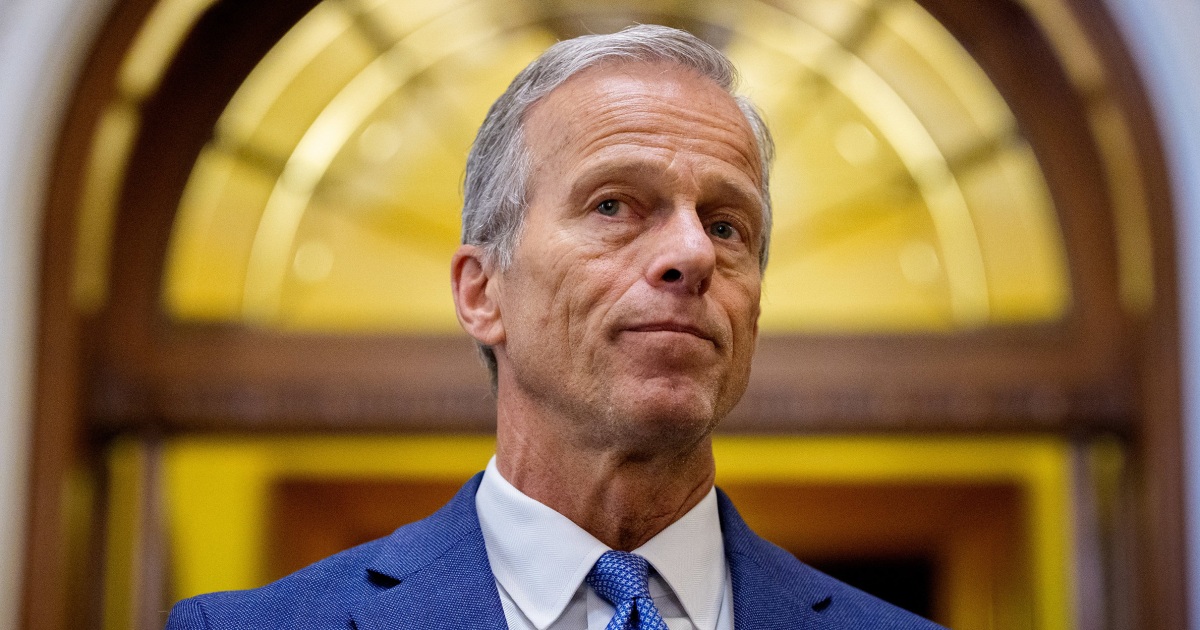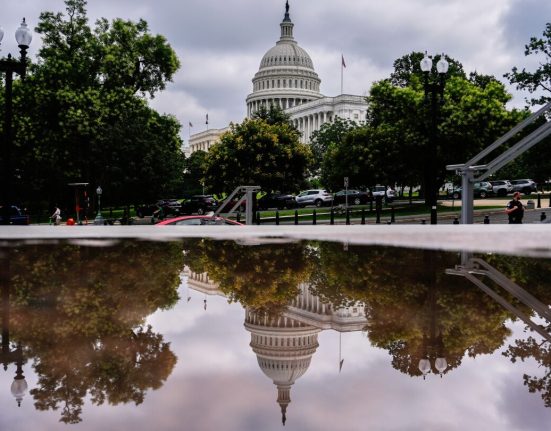Earlier this month, many congressional Republicans made clear that they had serious concerns about the party’s far-right domestic policy megabill, shortly before those same GOP lawmakers went ahead and voted for it anyway.
This week, it happened again, as a variety of Senate Republicans voiced concerns about a highly controversial $9 billion spending-cut bill, only to do what Donald Trump directed them to do soon after. NBC News reported:
The Republican-led Senate Republicans voted Thursday morning to pass a package of spending cuts requested by President Donald Trump, sending it to the House. The rescissions package cancels previously approved funding totaling $9 billion for foreign aid and the Corporation for Public Broadcasting, which funds NPR and PBS. Republicans passed it through a rarely used process to evade the 60-vote threshold and modify a bipartisan spending deal on party lines.
In a floor fight that happened shortly after 2 a.m. ET, the measure passed on a 51-48 vote. Two Senate Republicans — Susan Collins of Maine and Lisa Murkowski of Alaska — voted with the unanimous Democrats against the package. (Democratic Sen. Tina Smith of Minnesota missed the vote due to hospitalization, though she’s expected to be fine, and her vote wouldn’t have affected the final outcome.)
The Senate vote came less than a week after the president not only demanded that Republicans approve the legislation, but also vowed to withhold future endorsements for any GOP members who defied his instructions.
As legislative fights go, this one is a little different from most — on Capitol Hill, it’s common for lawmakers to approve funding measures, but it’s far more unusual to see members un-approve funding measures — so let’s unpack why these developments are so important.
What’s a “rescissions” package? When Congress appropriates funds, the White House is obligated to spend the tax dollars accordingly. Presidents, at least for now, do not have the legal option of simply ignoring lawmakers’ wishes and impounding the money, though Richard Nixon tried and failed to do so.
But there is a legal mechanism in place that allows the White House to send Congress requests to undo funds that were appropriated but not spent. These are called “rescissions” packages. Once they arrive on Capitol Hill, lawmakers have 45 days to either approve the packages and un-spend the money, or ignore the president’s request, which in turn would force the administration to do what Congress directed in the first place.
What’s in Trump’s “rescissions” package? While other presidents have had small and unremarkable rescissions requests, Trump’s version was far more ambitious: It sought to codify cuts from Elon Musk’s Department of Government Efficiency (DOGE), cutting roughly $1 billion from the Corporation for Public Broadcasting, which helps fund local public television and radio stations around the country, and roughly $8 billion from the State Department and the U.S. Agency for International Development (USAID).
While $9 billion might not seem like an enormous amount of money given the size of the federal budget and the overall U.S. economy, these specific cuts would, if approved, have a significant impact. Not only are there communities nationwide that rely on public broadcasting — for things such as weather forecasts and emergency alerts — but as MSNBC’s Michael Steele recently explained, the USAID cuts raise life-or-death questions for many desperate people worldwide.
What about the power of the purse? A bedrock feature of the Constitution is that Congress controls the nation’s purse strings. Trump and his team have made no secret of the fact that they hope to shift at least some of these powers to the White House, and pry authority away from lawmakers, as part of a larger power grab. A great many Republicans appear eager to go along with these efforts, surrendering congressional power to the president — again.
Why didn’t Senate Democrats use a filibuster to block the package? Because they couldn’t: The legislative process on rescissions packages does not allow the bills to meet a 60-vote threshold.
Why are Democrats insisting this will change spending negotiations going forward? This is an underappreciated element of the broader fight: For generations, Democrats and Republicans have advanced spending deals through bipartisan negotiations and compromises in which both parties end up with some of what they want. But if we’re entering an era in which presidents can decide to reject certain congressionally approved investments, and a narrow congressional majority can endorse such efforts after the fact, then members — especially those in the minority — have no reason to even try to reach bipartisan deals, since they’ll have no guarantees that the money will actually be spent.
Indeed, House Minority Leader Hakeem Jeffries made this point explicitly during an interview with MSNBC’s Chris Hayes this week.
What happens now? The House passed its version of the bill in mid-June, but Senate Republicans made some changes — specifically, they agreed to remove $400 million in cuts to PEPFAR, the foreign aid program to combat HIV/AIDS — which means the package will need to be voted on again in the lower chamber.
The timing is highly relevant: Under the procedural rules for this effort, Congress will need to pass the rescissions package by midnight Friday or the effort will fail. Most observers agree, however, that House Republicans will follow Trump’s demands before the deadline.
If the president’s gambit succeeds, as now appears very likely, it will almost certainly open the door to a series of related efforts. Watch this space.
This post updates our related earlier coverage.







